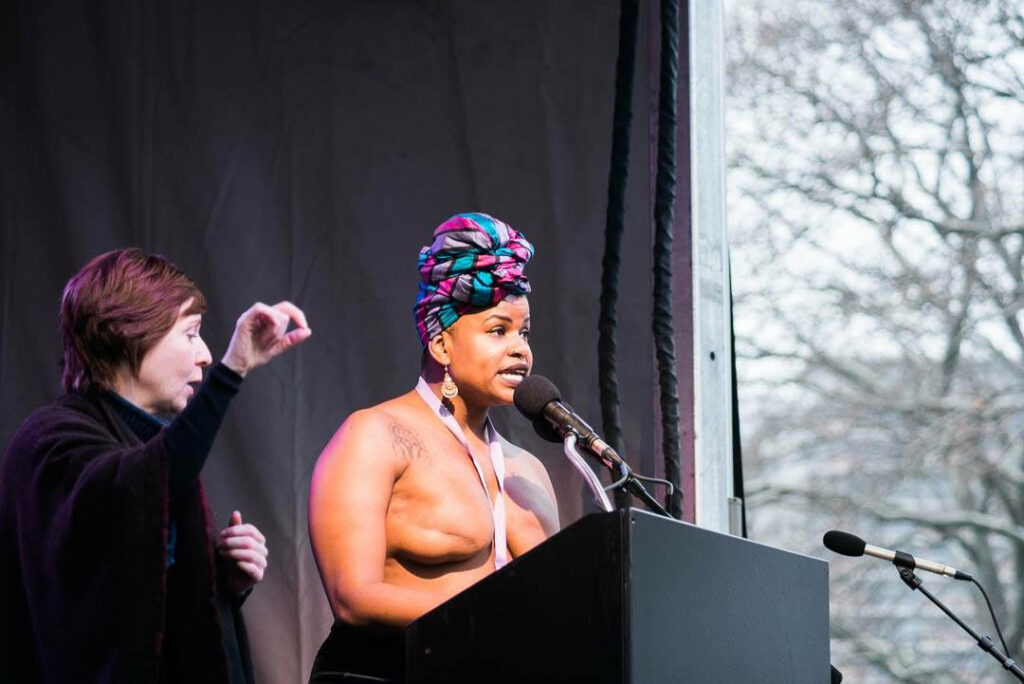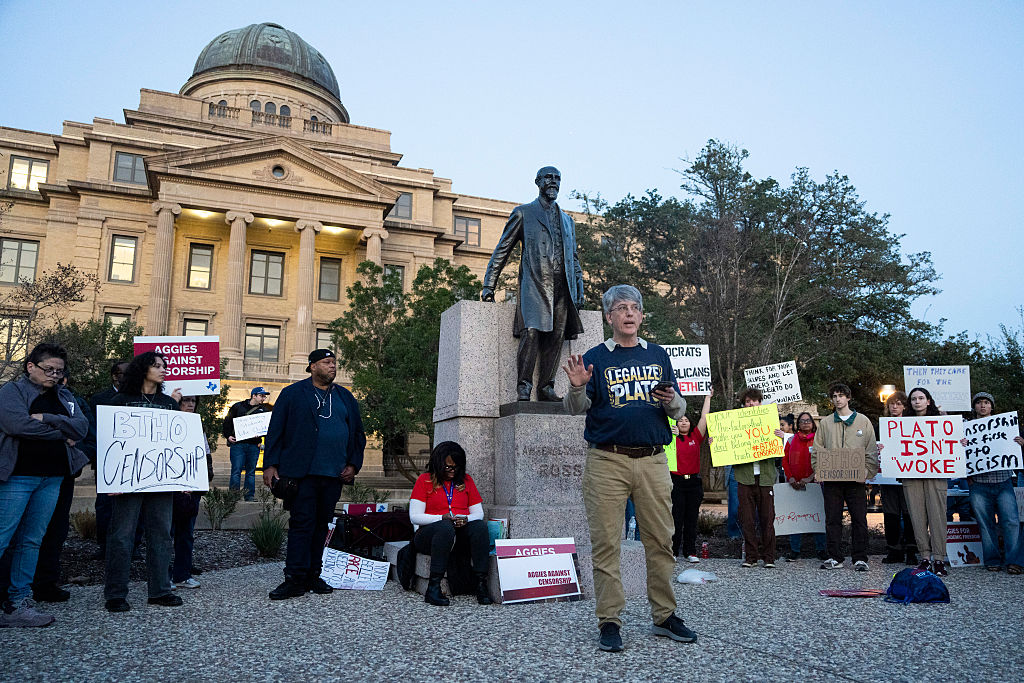The Most Important Speech from the Women’s March

Hart is a Black femme, breast cancer survivor and sex educator who spoke about who this march was for and how we can all learn to create more intersectionality in our feminist movements.
The Women’s March on Washington and sister cities happened this past weekend on January 21. The impact was millions of people taking to the streets to stand up for women’s rights on President Trump’s first day in office. Many seasoned activists took to the stage during the rallies to speak out for what they believe in.
The one speech you definitely don’t want to miss out on watching is Ericka Hart’s, from the Philadelphia Women’s March. Hart is a Black femme, breast cancer survivor and sex educator who spoke about who this march was for and how we can all learn to create more intersectionality in our feminist movements. Watch below and read the transcript for the full impact of Hart’s powerful speech.
“Mesha Caldwell. Jamie Lee Wounded Arrow. Jasmine Sierra. India Monroe. Noony Norwood. Brandy Bledsoe. Jazz Alford. Crystal Edmonds. Lexi Seronan. Rae’Lynn Thomas. Skye Mockabee. Goddess Diamond. Sandra Bland. Mercedes Successful. Joyce Quaweay. Sierra Bush. Veronica Banks Cano. Maya Young. Korryn Gaines. Monica Loera. And more. And more. And more.
If you do not recognize the names that were just called, I implore you to reconsider why you are here. Who is this for?
My experience living in this country is likened to someone who has been emotionally abused. If I speak out against anything, I am told to be happy/content/complacent that it even existed in the first place. I speak out against the co-opting of the Women’s March. Black cis and trans women, femmes and non-binary individuals have been under attack against gross misogynoir, violence, and body terrorism. We see it every day, even at this march.
Not everyone who identifies as a woman has a pussy nor does your identity as a woman have anything to do with pussy. But, yet I see a sea of knitted hats touting the power of the pussy, when some of you will never have to ponder the anti-Black origins upon which gynecology was built – from Betsey, Anarcha, and Lucy to Sarah Baartman’s whole body and Henrietta Lack’s cervix. If you want to talk about pussy, then you must start with the black pussy. The trauma of the pussy did not begin with Trump, it began when such a high premium was put on the power of the white one.
Who is this for? We have to stop being complicit in the same systems that gave Donald Trump platform to sanction and normalize sexual assault. No rallying at this magnitude happened for the 20+ trans folks who were murdered last year. Or the two trans women killed this year. Or when Sandra Bland was murdered. Korryn Gaines. If this march was for all women it would look a lot different and would have happened well before the day after the inauguration.
I keep hearing that this march is for everyone, but that just can’t when WE (cis and trans women of color) were an afterthought. I might lose some friends after this speech, but I rather you not be my friend than see another black femme murdered, disregarded, not seen, hair non-consensually touched at the hands of white supremacy, appropriated.
I stand here angry. Angry that it took a presidential election for droves of folks all over the country to believe what black femmes have been saying for more than twenty years. 2017 will mark the 20th anniversary of The Million Women’s March, which I will remind you was this march’s original name. A march created for and by black women that took place right here along this very route in Philadelphia. When will we stop ignoring black women? Who is this for?
If you don’t like what I’m saying, you might consider you are not here for all women. I stand here for the people who couldn’t quite find the words to voice their concerns against this march. I stand here for the people who have been sterilized against their will in prisons. I stand here for incarcerated cis and trans women under The New Jim Crow. I stand here for the indigenous people’s still fighting to not have contaminated water. I stand here for the people of Detroit still fighting for clean water. I stand here for the cis woman who carried her mattress on her head across an Ivy League school campus just so people would validate her sexual assault experience. I stand here for the people who have had 1,2,3, or 4 babies before some presumed respectable age and are chastised for creating life in the process. I stand here for the little black girl thrown from her classroom chair by a police office for being on her phone. I stand here for the folks who are misgendered just by participating in this march. I stand here for sex workers and the women of the service industry for whom economic justice must be a reality. I stand here for the people who do not have access to political language or activism and for those whose activism lies in their continued existence. I stand here for the sexual assault survivors. I stand here for people with chronic illnesses and disabilities. I stand here for those who didn’t want to be here and chose not to. I stand here for those who did not receive marches all over the country when their bodies were under attack, those constantly on the front lines.
Have you noticed who is NOT here? I ask that you notice moving forward and get intentional about inclusivity. Start asking in all of the spaces you occupy and take up: Who is this for? And then make it for them.”












